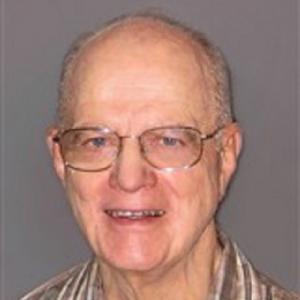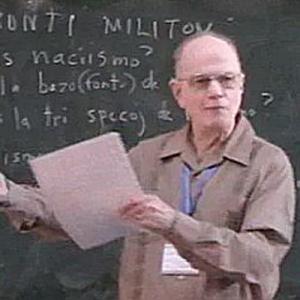Esperanto Activist Retired Professor Ronald Glossop Ph.D. to be Featured on CUTV News Radio
SAINT LOUIS, MISSOURI, UNITED STATES, May 24, 2019 /EINPresswire.com/ -- The internationalism of the 20th century has given way to the globalism of the 21st century.
The destruction of war should no longer be necessary to resolve conflicts.
Esperanto was designed to serve as a readily learned second language to foster peace and international understanding.
Retired professor Ronald Glossop Ph.D. is a former president of the American Association of Teachers of Esperanto from 2009 to 2018, as well as a member of the board of directors of Esperanto-USA and a vice president of the International League of Esperanto Teachers.
“Mi parolas Esperanton. I speak Esperanto,” says Glossop. “I've been teaching for 35 years and it’s much easier to learn than most languages.”
Esperanto is the most widely spoken constructed international auxiliary language in the world. The word “Esperanto” translates to English as "one who hopes." There are approximately two million speakers across the world.
The author of Confronting War and a member of Citizens for Global Solutions, Glossop discovered Esperanto through a happy accident.
“One day I was giving a talk about my ideas about what needed to be done in order to make war less likely, to minimize or eliminate war. And I said it would really help is if everybody could speak a common language. Well, one person in the audience was an Esperantist. Afterward he came up and he said, ‘You know, there's already a world language like what you're talking about.’ As I investigated it, it conformed precisely to the ideas I had already developed about what a world language would have to be.”
Esperanto was invented in late 19th century by Polish physician L. L. Zamenhof while a student in Poland.
“He lived in the town of Bialystok where there were four different language groups who were routinely in violent conflict with one another,” says Glossop. “He thought if they could just communicate with each other, it would prevent them from escalating to violence. Once you have a common language, you can talk about your differences.”
The Esperanto alphabet is 28 letters; each letter has one and only one sound. One of the unique features of Esperanto is that there is a perfect correlation between its written language and its spoken language. If you know how to spell it, you know how to pronounce it; if you know how to pronounce it, you know how to spell it.
“By keeping it simple, Esperanto enables people from different countries to readily communicate with each other without having to learn another complicated national language,” says Glossop. “I did not have to learn Chinese before going to China. I did not have to learn Italian before going to Italy.
Dr. Glossop believes Esperanto could help lead us toward a vision of a more peaceful future.
CUTV News Radio will feature Ronald Glossop in an interview with Jim Masters on May 28th at 3pm EDT and with Doug Llewelyn on June 4th at 3pm
Listen to the show on BlogTalkRadio
If you have any questions for our guest, please call (347) 996-3389
For more information, visit www.icxlm.org and www.globalsolutions.org
Lou Ceparano
CUTV News
+1 (631) 850-3314
email us here
Visit us on social media:
Facebook
Legal Disclaimer:
EIN Presswire provides this news content "as is" without warranty of any kind. We do not accept any responsibility or liability for the accuracy, content, images, videos, licenses, completeness, legality, or reliability of the information contained in this article. If you have any complaints or copyright issues related to this article, kindly contact the author above.



